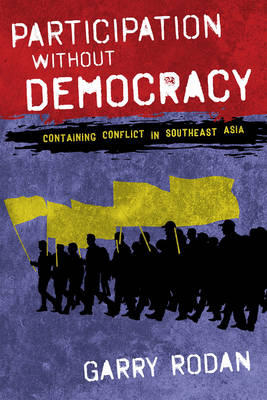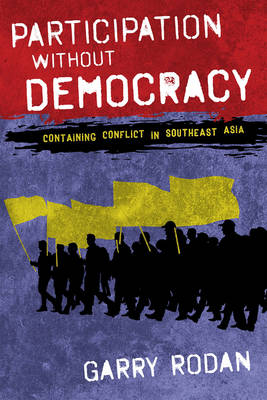
- Afhalen na 1 uur in een winkel met voorraad
- Gratis thuislevering in België vanaf € 30
- Ruim aanbod met 7 miljoen producten
- Afhalen na 1 uur in een winkel met voorraad
- Gratis thuislevering in België vanaf € 30
- Ruim aanbod met 7 miljoen producten
Participation Without Democracy
Containing Conflict in Southeast Asia
Garry RodanOmschrijving
Over the past quarter century new ideologies of participation and representation have proliferated across democratic and non-democratic regimes. In Participation without Democracy, Garry Rodan breaks new conceptual ground in examining the social forces that underpin the emergence of these innovations in Southeast Asia. Rodan explains that there is, however, a central paradox in this recalibration of politics: expanded political participation is serving to constrain contestation more than to enhance it.
Participation without Democracy uses Rodan's long-term fieldwork in Singapore, the Philippines, and Malaysia to develop a modes of participation (MOP) framework that has general application across different regime types among both early-developing and late-developing capitalist societies. His MOP framework is a sophisticated, original, and universally relevant way of analyzing this phenomenon. Rodan uses MOP and his case studies to highlight important differences among social and political forces over the roles and forms of collective organization in political representation. In addition, he identifies and distinguishes hitherto neglected non-democratic ideologies of representation and their influence within both democratic and authoritarian regimes. Participation without Democracy suggests that to address the new politics that both provokes these institutional experiments and is affected by them we need to know who can participate, how, and on what issues, and we need to take the non-democratic institutions and ideologies as seriously as the democratic ones.
Specificaties
Betrokkenen
- Auteur(s):
- Uitgeverij:
Inhoud
- Aantal bladzijden:
- 300
- Taal:
- Engels
Eigenschappen
- Productcode (EAN):
- 9781501720109
- Verschijningsdatum:
- 15/05/2018
- Uitvoering:
- Hardcover
- Formaat:
- Genaaid
- Afmetingen:
- 152 mm x 229 mm
- Gewicht:
- 607 g

Alleen bij Standaard Boekhandel
Beoordelingen
We publiceren alleen reviews die voldoen aan de voorwaarden voor reviews. Bekijk onze voorwaarden voor reviews.











